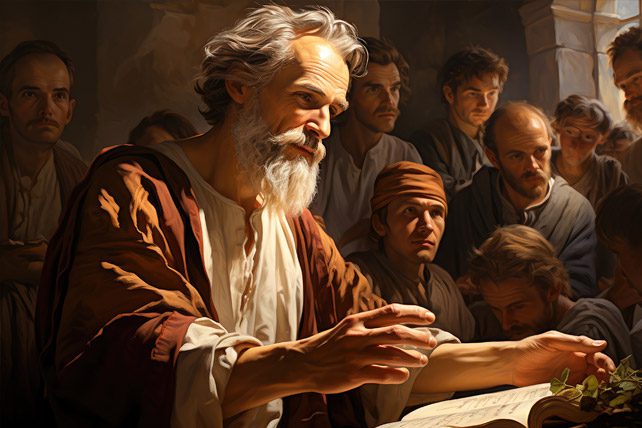The tapestry of Christian theology is intricately woven with prophecies from the Old Testament that herald the coming of Jesus Christ, the Messiah. These prophecies serve as a bridge between the Jewish scriptures and the Christian New Testament, illustrating a continuity that has fascinated scholars, theologians, and believers for centuries. The Old Testament, written hundreds of years before Jesus’ birth, contains numerous predictions about the life, death, and resurrection of the Messiah. Old Testament prophecies of Jesus are not merely historical footnotes but are foundational to Christian faith, providing evidence of divine orchestration in the narrative of redemption.
Understanding Old Testament prophecies of Jesus is crucial for both Jewish and Christian traditions. For Christians, these prophecies affirm the belief that Jesus is the promised Messiah, whose life and mission were foretold by the prophets. They offer a compelling argument for the divine inspiration of the scriptures, showcasing a detailed prediction of events that were fulfilled centuries later. This article aims to explore the depth and breadth of these prophecies, from the predictions of Jesus’ miraculous birth to the profound foretellings of His sacrificial death and victorious resurrection.
Old Testament prophecies of Jesus are numerous and varied, touching on every aspect of His earthly ministry and divine purpose. Scholars have identified specific texts that directly point to Jesus, with interpretations grounded in historical context, linguistic analysis, and theological insight. These prophecies not only foretold His birth in a humble setting but also His role as a suffering servant, His death as an atonement for sin, and His resurrection as a triumph over death. Through a chronological and analytical exploration, this article will delve into the significant Old Testament prophecies about Jesus, examining their historical context, their fulfillment in the New Testament, and their enduring significance for faith today.
Old Testament prophecies of Jesus of Jesus’ Birth
The birth of Jesus Christ is foretold with remarkable clarity in the Old Testament, through prophecies that detail not only the miraculous nature of His birth but also His lineage and the significance of His arrival. These prophecies are pivotal, as they set the stage for the fulfillment of God’s promise of a Messiah, who would bring salvation to the world.
Isaiah 7:14 – The Virgin Birth
One of the most explicit Old Testament prophecies of Jesus birth is found in Isaiah 7:14, which states, “Therefore the Lord himself will give you a sign: The virgin will conceive and give birth to a son, and will call him Immanuel.” This prophecy is fulfilled in the New Testament in the Gospel of Matthew 1:22-23, where Mary’s conception is described as being through the Holy Spirit, affirming Jesus’ divine origin and His role as “God with us.”
































